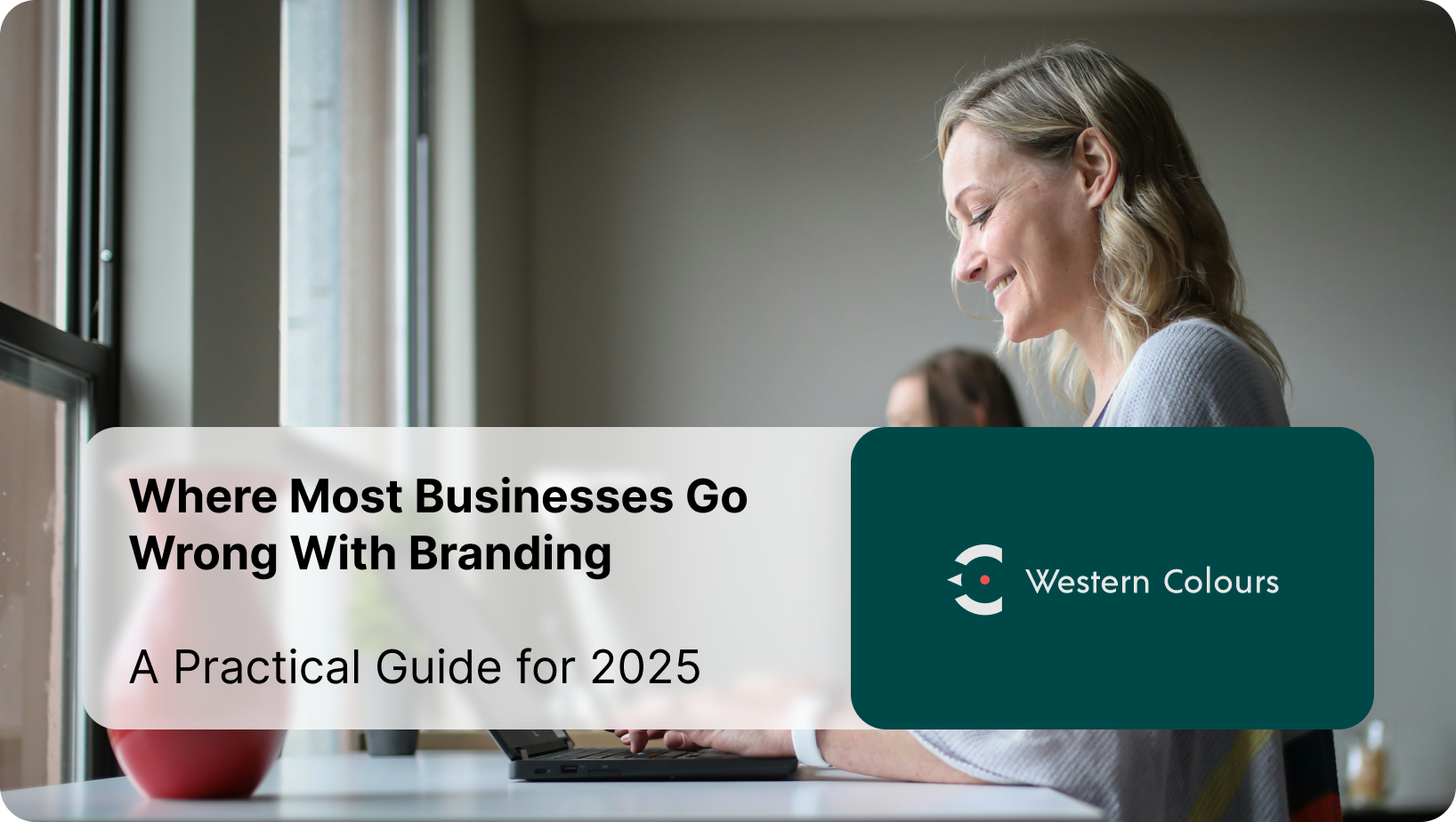Where Most Businesses Go Wrong With Branding — A Practical Guide for 2025
Branding isn’t just a logo, a colour palette, or a set of nicely worded values. It’s the total experience someone has with your business. And yet, even with the best intentions, most SMEs fall into the same patterns — patterns that quietly drain time, budget, and momentum.
1. Treating Branding as a Logo, Not a System
Many businesses see a logo as the brand itself. The result? Marketing collateral that feels disjointed, inconsistent messaging, and constant rework.
Fix: Build a small but robust brand system including:
Value proposition clarity
Tone of voice guidance
Visual identity rules
Templates for core materials
A practical brand guide
Even a simple system keeps your marketing coherent and decisions faster. Modern creative models, including nearshore teams, make it possible to maintain this consistency efficiently.
2. Trying to Appeal to Everyone
Generic messaging may feel “safe,” but it dilutes impact. When you try to be everything to everyone, you risk being nothing to anyone.
Fix: Be specific. Clearly define:
Who you serve and who you don’t
What differentiates you from competitors
Clarity builds trust and attracts the right customers.
3. Inconsistent Execution Across Touchpoints
A polished website paired with DIY social graphics or inconsistent copy tone creates a perception gap — damaging credibility.
Fix:
Use a shared asset library
Implement simple templates
Assign someone (internal or external) to oversee brand consistency
This is where centralised, flexible creative teams — including nearshore support — provide significant value, keeping all assets aligned without inflating costs.
4. Rebranding Without Purpose
Reactionary rebrands (triggered by competitors, trends, or internal preference) often fail because the problem isn’t the visuals — it’s messaging, positioning, or process.
Fix: Rebrand only when there’s a clear strategic reason: new audience, updated positioning, or credibility challenges. Otherwise, refine and iterate what already works.
5. Overpaying or Underinvesting at the Wrong Stage
Some SMEs hire large agencies too early; others under-resource branding for years. Both extremes are costly.
Fix: Match investment to your growth stage:
Early-stage: core brand system + messaging
Growth: refined identity + collateral + guidelines
Established: full ecosystem + ongoing strategy
Nearshore creative services extend budget reach, meaning we can overdeliver, at a scale and cost that exceeds your immediate business needs, .
6. Treating Branding as a One-Off Project
Markets shift. Competitors evolve. Customer expectations move. Brands need ongoing attention.
Fix: Conduct quarterly reviews (or targeted surveys) and small iterative updates to keep your brand current. Even small, consistent efforts prevent larger, more expensive problems later.
7. Fragmented Creative Support
Using multiple freelancers for different elements often leads to inconsistent execution.
Fix: Use a single creative team or a small centralised group who understand your brand system. This reduces inefficiencies and ensures a coherent brand voice.
8. Waiting Until Something’s “Broken”
Too many SMEs address branding reactively — after leads dip, or competitors gain advantage. By then, fixes are bigger, more expensive, and riskier.
Fix: Treat branding proactively. Even a modest, regular investment in messaging and identity prevents costly gaps.
Conclusion
Branding mistakes aren’t failures — they’re blind spots.
The best placed changes are well researched and strategic, relevant to the market, not C-Suite whims.
Most are simple to prevent with:
Clear messaging
Consistent application across channels
Strong brand systems
Trusted creative support (nearshore models can help)
Ongoing maintenance
Smart investment early saves money, time, and stress — and positions your brand to grow confidently in 2025.


